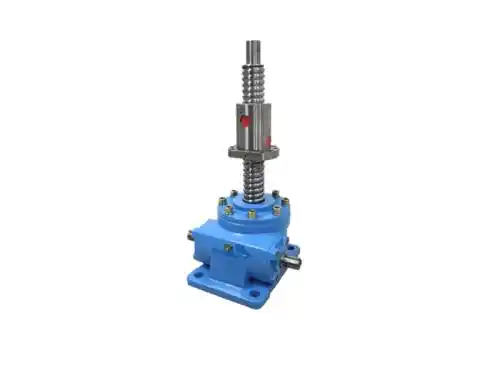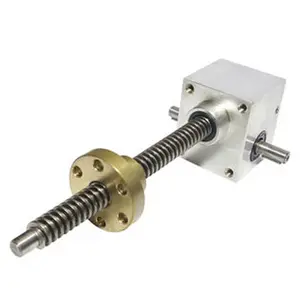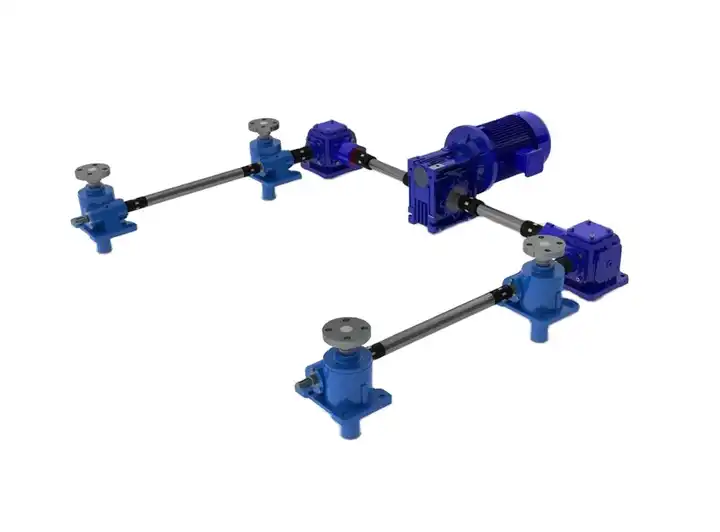Product Description
With excellent service and technology, as a professional factory of fasteners and hardware, we have a good reputation in the industry. We provide customers with comprehensive fastener and metal products solutions. We specialize in supplying all kinds of stainless steel, high-strength and low-carbon steel fasteners, in line with DIN, ANSI/ASTM, BS, JIS, GB and many other internationally recognized standards. The factory has ISO9001and ISO14001system certification, and can provide PPAP and APQP test reports. Our product range includes: screw, bolts, nuts, standoff, shaft, insert, etc.
At the same time, we can process special parts according to customer samples or drawings.We have fast delivery because we have CNC machines, auto lathe machines, Multi-function cold upseting machines, screw-washer assembly machines, optical sorting machines(CCD). We can control the quality well since we have several kinds of inspection equipments, including coordinate measuring machine, 2.5 tims machine, XRF tester, contourgraph machine, torque tester, locking test for torque force, rally of pushing machine, surface roughometer, friction tester, peeling strengh tester, constant temperature and humidity machine, Univeral testing machine, salt spray tester, polishing machine, etc.
| After-sales Service: | Yes |
|---|---|
| Warranty: | One Year |
| Application: | Metal |
| Process Usage: | Metal-Cutting CNC Machine Tools, CNC Non-Conventional Machine Tools, Metal-Forming CNC Machine Tools |
| Movement Method: | Contour Control |
| Control Method: | Open-Loop Control |
| Samples: |
US$ 100/Piece
1 Piece(Min.Order) | |
|---|
| Customization: |
Available
| Customized Request |
|---|
How do screw jacks compare to other methods of lifting and adjusting loads?
When comparing screw jacks to other methods of lifting and adjusting loads, several factors come into consideration. Here’s a comparison of screw jacks with other commonly used methods:
- Hydraulic Systems: Screw jacks offer several advantages over hydraulic systems:
- Control and Precision: Screw jacks provide precise control and incremental adjustments. Hydraulic systems, on the other hand, may have limitations in terms of fine-tuning and precise positioning.
- Self-Locking: Screw jacks have a self-locking feature, which means they can hold positions without the need for continuous hydraulic pressure. Hydraulic systems typically require constant pressure to maintain position, which can be a disadvantage in certain applications.
- Simplicity and Maintenance: Screw jacks are generally simpler in design and require less maintenance compared to hydraulic systems. Hydraulic systems involve additional components such as pumps, hoses, valves, and hydraulic fluid, which can introduce complexity and maintenance requirements.
- Load Capacity: Screw jacks are available in a wide range of load capacities, making them suitable for both light-duty and heavy-duty applications. Hydraulic systems can handle higher loads but may be less suitable for precise adjustments in lighter load ranges.
- Pneumatic Systems: Screw jacks offer several advantages over pneumatic systems:
- Precision and Control: Screw jacks provide precise and controlled adjustments, allowing for accurate positioning. Pneumatic systems may have limitations in terms of fine-tuning and precise control.
- Self-Locking: Screw jacks have a self-locking feature, which allows them to hold positions without the need for continuous pneumatic pressure. Pneumatic systems require continuous pressure to maintain position, which can be a drawback in certain applications.
- Energy Efficiency: Screw jacks are typically more energy-efficient compared to pneumatic systems since they do not require a constant supply of compressed air.
- Load Capacity: Screw jacks can handle a wide range of load capacities, making them suitable for various applications. Pneumatic systems may have limitations in terms of handling heavy loads.
- Electric Actuators: Screw jacks offer several advantages over electric actuators:
- Load Capacity: Screw jacks are capable of handling high loads and are suitable for heavy-duty applications. Electric actuators may have limitations in terms of load capacity.
- Self-Locking: Screw jacks have a self-locking feature, which allows them to hold positions without the need for continuous electric power. Electric actuators may require continuous power to maintain position.
- Precision and Control: Screw jacks provide precise control and incremental adjustments. Electric actuators can offer precise positioning but may have limitations in terms of fine-tuning and incremental adjustments.
- Cost-Effectiveness: Screw jacks are often more cost-effective compared to electric actuators, making them a preferred choice in certain applications.
It’s important to note that the choice between screw jacks and other methods depends on the specific requirements of the application, such as load capacity, precision, control, maintenance, and cost considerations. Each method has its strengths and limitations, and manufacturers and engineers evaluate these factors to determine the most suitable solution for a particular lifting or adjusting task.
What safety precautions should be followed when operating screw jacks?
Operating screw jacks safely is essential to prevent accidents, injuries, and damage to equipment. Here are some important safety precautions that should be followed when operating screw jacks:
- Read and Understand the Manual: Before operating a screw jack, carefully read and understand the manufacturer’s instruction manual. The manual provides important safety information, operating procedures, and maintenance guidelines specific to the screw jack model. Following the manufacturer’s instructions is crucial for safe and proper operation.
- Inspect the Screw Jack: Prior to use, inspect the screw jack for any signs of damage, wear, or loose components. Check for proper lubrication and ensure that all connections and fasteners are secure. If any issues are identified, do not operate the screw jack and address the problems through maintenance or contact the manufacturer for assistance.
- Use Appropriate Personal Protective Equipment (PPE): When operating a screw jack, wear the necessary personal protective equipment (PPE) as recommended by the manufacturer and applicable safety regulations. This may include safety glasses, gloves, steel-toed shoes, or other protective gear depending on the specific application and work environment.
- Ensure Stable Support: Place the screw jack on a stable and level surface capable of supporting the load. Ensure that the supporting structure or surface is capable of withstanding the forces generated during the lifting or lowering operation. Use appropriate blocking or shoring if additional support is required.
- Do Not Exceed Load Capacity: Never exceed the load capacity specified by the manufacturer for the screw jack. Overloading the screw jack can lead to instability, component failure, or other safety hazards. It is important to know the weight of the load being lifted or supported and select a screw jack with an appropriate load rating.
- Operate Smoothly and Carefully: Operate the screw jack smoothly and carefully, avoiding sudden or jerky movements. Use the operating handle or control mechanism provided by the manufacturer and follow the recommended operating procedures. Maintain control over the lifting or lowering process, and ensure that personnel or body parts are clear of pinch points or potential hazards.
- Do Not Use as a Permanent Support: Screw jacks are not designed to be used as permanent supports or to sustain constant loads over extended periods. They are intended for intermittent or temporary use. Avoid using screw jacks as permanent supports or in situations where prolonged load-bearing is required.
- Properly Store and Maintain: After use, properly store the screw jack in a clean and dry environment. Follow the manufacturer’s maintenance guidelines for lubrication, inspection, and periodic maintenance. Regularly check the screw jack for any signs of wear, damage, or deterioration, and address any issues promptly.
- Training and Competence: Ensure that operators are adequately trained and competent in the safe operation of screw jacks. Training should cover proper use, maintenance, and understanding of the associated hazards and safety precautions.
Following these safety precautions when operating screw jacks promotes a safe working environment and helps prevent accidents or injuries. It is important to prioritize safety and adhere to the manufacturer’s guidelines and industry best practices.
How do manufacturers ensure the quality and reliability of screw jack mechanisms?
Manufacturers employ various quality control and testing measures to ensure the quality and reliability of screw jack mechanisms. These measures are implemented throughout the manufacturing process to verify that the screw jack meets the required standards and performance specifications. Here are some common practices manufacturers use to ensure quality and reliability:
- Design and Engineering: Manufacturers invest in robust design and engineering processes to develop screw jack mechanisms that meet the intended specifications. This includes selecting appropriate materials, determining the optimal thread design, and performing structural analysis to ensure the screw jack can handle the expected loads and movements. Thorough design and engineering processes contribute to the overall quality and reliability of the mechanism.
- Material Selection: Manufacturers carefully select materials with the necessary strength, durability, and corrosion resistance for the construction of screw jack mechanisms. High-quality materials, such as alloy steels or stainless steels, are often chosen to ensure the longevity and reliability of the screw jack. Material selection is based on factors such as load requirements, environmental conditions, and industry standards.
- Quality Assurance: Manufacturers implement comprehensive quality assurance processes to monitor and control the manufacturing steps. These processes include inspections, audits, and documentation to ensure that each screw jack meets the specified quality standards. Quality assurance measures may involve checks for dimensional accuracy, thread quality, surface finish, and proper assembly. Through quality assurance, manufacturers can identify and address any potential defects or deviations from the desired specifications.
- Testing and Performance Evaluation: Manufacturers conduct rigorous testing and performance evaluations to verify the functionality, load capacity, and reliability of screw jack mechanisms. This may involve load testing, endurance testing, and cycling tests to simulate real-world operating conditions. Testing helps validate the performance of the screw jack and ensures that it can handle the intended loads and movements without failure or significant degradation over time.
- Compliance with Standards: Manufacturers ensure that screw jack mechanisms comply with relevant industry standards and regulations. Compliance with standards such as ISO (International Organization for Standardization) or specific industry standards provides assurance of the quality and reliability of the product. Manufacturers may obtain certifications or undergo third-party audits to validate compliance with these standards.
- Customer Feedback and Continuous Improvement: Manufacturers value customer feedback and use it to drive continuous improvement in the design, manufacturing, and performance of screw jack mechanisms. By actively seeking input from customers and end-users, manufacturers can identify areas for enhancement and implement changes to improve the quality and reliability of their products.
By implementing stringent design processes, careful material selection, thorough quality assurance, testing and performance evaluation, compliance with standards, and continuous improvement practices, manufacturers ensure the quality and reliability of screw jack mechanisms. These measures help deliver screw jacks that meet the industry’s expectations for performance, safety, and durability.
editor by CX 2023-12-15




